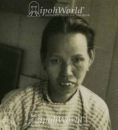We've tried to ensure the information displayed here is as accurate as possible. Should there be any inaccuracies, we would be grateful if you could let us know at info@ipohworld.org . All images and content are copyright.
(Please click on the thumbnail for a bigger image.)
Lim Ching Lian And Yoong Choon Moy, The Little Daughters In Law


This record is used to introduce an age-old Chinese tradition that occurs several times in this archive and requires some explanation.
For the Chinese, the patriarchal chain was very important in a family and therefore bearing one or more sons was the first priority for a woman above all else. Daughters had no value! Therefore, most of the females born in a Chinese family, would be given away as early as possible, quite often at just a few days old. Only the richest families would consider keeping a daughter. The concept of this apparently cruel and heartless act was that daughters will eventually marry into another family and anything spent on them whether in bringing them up or educating them, was simply a waste of their family’s money. So the sooner the girls could be got rid of the more money could be saved to spend on the sons’ upbringing.
When the girls were given away, their new family took them as future wives for their sons (who had no choice in the matter) whether born or not, and were known as ‘the future daughters-in-law’. This tradition continued in China for more than 700 years, but was banned there, by the Communist government, in the 1950’s. Initially Chinese immigrants brought the practice to Malaya and Ipoh, but it seems to have died out naturally here in the 1940’s. This story begins in mainland China when Lim Ching Lian, daughter of ‘Scholar’, Lim Den Cheng was given away as a ‘little daughter-in-law’ to the Phoong family at three days old. She was to be the wife of their then four year old son, Phoong Ze Nam. In return for this gift her father received an Ang Pow of two dollars. Some years later she was living with her husband in Siao Lok village, Jiao Liang County and lost her first baby (a son) when he was only some ten weeks old. Of course she was distraught with grief. Shortly afterwards she also suffered the death of her father-in-law. She was in deep trauma.
Her friends in the village, being very concerned about her, suggested that she should take a girl into the family, hoping that this little girl would bring good luck to the family by way of new-born sons. The first son to be the future husband of this, newly ‘adopted’, daughter. Ching Lian agreed and took in the baby Yoong Choon Moy. With no sons in the family, Choon Moy could not be known as ‘the little daughter-in-law’ and therefore became known instead as ‘the lady-in-waiting’ (Den Long Sau), while she was waiting for her husband to be born. A year or so later there was great celebration in the family as a son, Phoong Tet Ching, was born to Ching Lian and Phoong Ze Nam. Choon Moy, who now had a husband to be, could at last be known as ‘the little daughter-in-law’!
Phoong Tet Ching, brought up by his grandmother, was very reluctant to marry Choon Moy whom he saw as someone he had grown up with as a sister, and who was also two years older than him. However, she had been chosen for him by his parents before he was born and being a loyal son accepted their decision. His grandmother ensured that the marriage took place when he was 18 and before he was likely to follow his brothers and parents who had all emigrated to Malaya earlier. While the marriage prospered in as much as the couple emigrated to Malaya, had three children and adopted a fourth, all in the Ipoh area, it is said that it was never really harmonious. She was a dutiful wife and obedient daughter-in-law, and as tradition required worked hard in the house, never answering back even when she was in the right. On the passing of her mother-in law she took on the responsibilities of the entire household of her husband’s brothers and sisters and was renowned for her cooking of such dishes as Fish Ball Soup with Cabbage or Potato Cakes. Despite these attributes as a wife and mother, her husband never really treated her as such in public, being blunt with her rather than caring. Nonetheless, there were tears on his face the night she died in 1981. Her funeral took place at St Michael’s Church, Ipoh with hundreds of mourners in attendance. Yoong Choon Moy is buried in the Catholic cemetery in Tambun.
To read more about Phoong Tet Ching, click here.
To read more about Phoong Ze Nam, click here.
To read more about St Michael’s Catholic Church, Ipoh, click here.